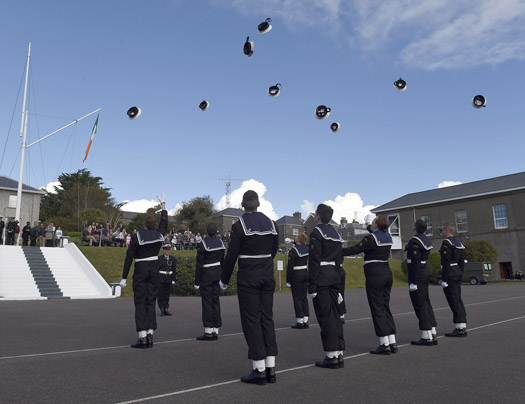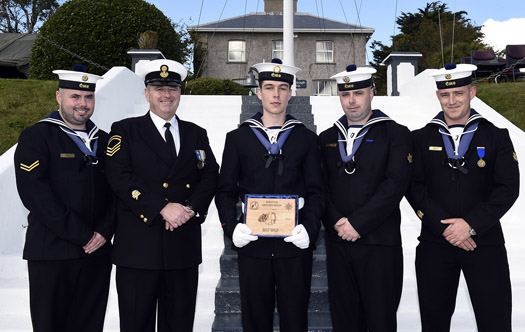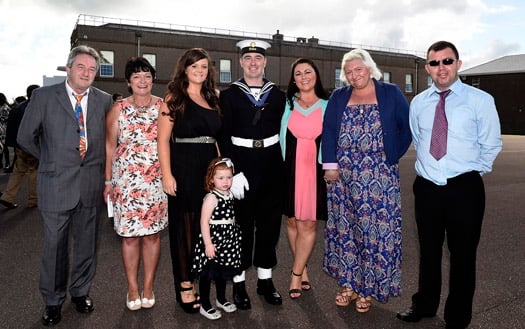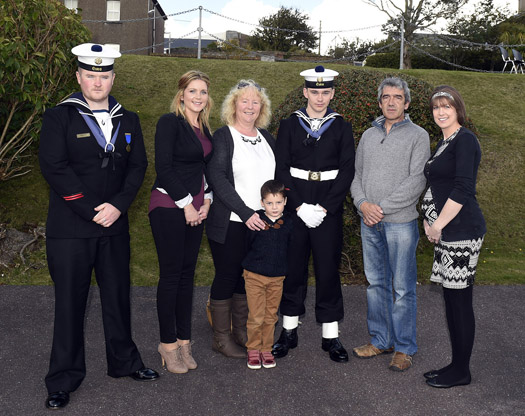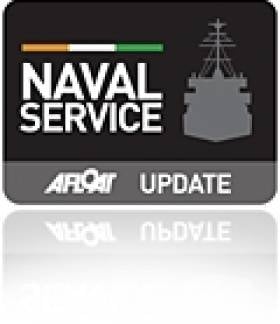Displaying items by tag: Reserve
Naval Service Reserve Passing Out Ceremony At Haulbowline
#navy – Ten new recruits to the Naval Service Reserve completed their training in a ceremony in the Naval Base on Haulbowline yesterday. The 10 recruits, 9 from Cork and 1 from Dublin endured 3 weeks of intense training where they covered a range of subjects such as foot and arms drill, marksmanship, sea survival, fire-fighting, military law and an introduction to military customs, traditions and way of life.
This is a milestone as it marks the first integrated Naval Service Reserve recruit class since the inception of the Single Force Concept which is a key element of the 2012 Defence Forces Reorganisation. The training was shared between members Naval College and the Naval Service Reserve. The Naval Service Reserve will soon be seeking a total of 25 potential recruits in its Cork (2), Dublin (5), Limerick (8) and Waterford (10) units.
The role of the NSR is to augment Naval Service seagoing strength through provision of trained personnel whilst at unit level providing the capability for an armed Naval Element afloat with local shore support and expert local maritime knowledge and intelligence in support of PDF Operations at and from the sea in the main trading ports in support of maintenance of National Sea Lines of Communication (SLOC).
The Naval Service is an integral part of Óglaigh na hÉireann / Defence Forces and operates jointly with the Army and Air Corps. The Naval Service protects Ireland's interests at and from the sea. Currently, the Naval Service is tasked with a broad range of maritime defence, security and other roles. Routine patrols are multi-tasked to encompass national and maritime security, ocean governance, fishery protection, safety and surveillance, port security, drug interdiction, pollution control and search and rescue.
The Service also supports Army operations in the littoral and by sea lift. It provides support on Aid to the Civil Power and Aid to the Civil Authority operations, including inter alia maritime security cordons, and possesses the primary diving team in the State. The Fisheries Monitoring Centre ( FMC) at the Naval Base is the designated national centre with responsibility for monitoring all fishing activity within the Irish Exclusive Fishery Limits and all Irish fishing vessels operating around the world. In addition, Naval Service Vessels have undertaken supply and reconnaissance missions to overseas peace support operations and participated in foreign visits in support of Irish Trade and Diplomacy.
